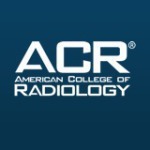por
Lauren Dubinsky, Senior Reporter | July 18, 2016
ACR has updated its manual on contrast media to include the FDA's statement on the use of gadolinium-based contrast agents (GBCAs) for the approximately 30 million patients who receive doses for MR exams each year.
The industry has recently discovered that GBCA can reside in the brain tissue of patients who received multiple doses over their lifetime. In response, the FDA published a safety alert in July 2015 stating that it was investigating the risk of GBCA deposits.
There have been no reports to date that show that the deposits are associated with neurotoxicity, even among GBCAs with the highest rates of deposition. But until the clinical effects are fully understood, the safety and tissue deposition potential of all GBCAs will be evaluated.



Ad Statistics
Times Displayed: 60070
Times Visited: 5271 MIT labs, experts in Multi-Vendor component level repair of: MRI Coils, RF amplifiers, Gradient Amplifiers Contrast Media Injectors. System repairs, sub-assembly repairs, component level repairs, refurbish/calibrate. info@mitlabsusa.com/+1 (305) 470-8013
According to the manual, each time a GBCA-enhanced MR is considered, the clinical benefit of the exam and the unknown potential risk for every patient should be assessed. Pediatric patients and others who might undergo many of these exams should get extra attention.
If the clinician decides to perform the exam, many factors should be taken into consideration when choosing a GBCA. Those include diagnostic efficacy, relativity, rate of adverse reactions, dosing/concentration and propensity to deposit in more sensitive organs like the brain.
The manual lists the adverse reactions of gadolinium-based contrast media (GBCM) such as nausea, headache, and dizziness, as well as providing information on how to treat the reactions.
The manual also discusses the fact that GBCM can also cause nephrogenic systemic fibrosis in patients with severe chronic kidney disease or acute kidney injury, and the safety of GBCAs in patients with sickle cell disease.
“Reviews from radiologists show that this reference on contrast media is a practical and valuable resource in support of the millions of radiological examinations that may be assisted by intravascular contrast media annually,” Dr. James H. Ellis, chair of the ACR Committee on Drugs and Contrast Media, said in a statement.
The manual is available for free as a downloadable document on the ACR's website.

